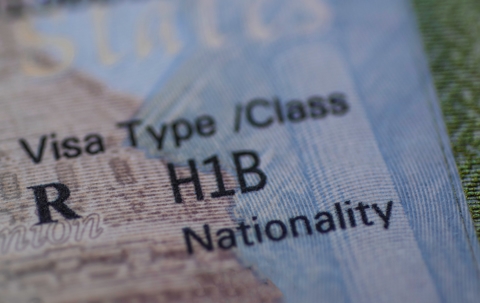This week, the Department of Homeland Security (DHS), published a Notice of Proposed Rulemaking (NPRM) in the Federal Register with proposed updates to modernize and streamline the H-1B specialty occupation program so that it functions more effectively for both employers and employees, while adding measures to ensure that the integrity of the program is maintained.
Some of the key updates proposed by DHS include:
- Modernization and Efficiencies
In an effort to better align the H-1B specialty occupation criteria with current industry practices for skills-first culture, DHS proposes revising the regulatory definition of specialty occupation to specify that a position may require a range of educational degrees to meet the H-1B specialty occupation criteria, as long as there is a direct relationship between the job duties of the position and the knowledge and skills acquired through the required degree field(s). The direct relationship between the required degree field(s) and the job duties of the H-1B position may be quite clear in some instances, but in other cases, the petitioner may have to provide additional documentation to to clearly demonstrate the relationship. DHS also proposes to clearly state that a general degree (such as business or engineering) would not be considered as a qualifying educational degree for a specialty occupation without further specialization.
Other updates for modernization and efficiencies, include proposalto codify and clarify that adjudicators should generally defer to a prior determination as long as no underlying facts have changed since the prior filing. DHS also proposes to clearly specify when an amended or new petition is required when there is a change in the H-1B employee’s work location.
DHS is also requesting updates to the regulations to specify that evidence of maintenance of status must be included in all extension and amendment applications by way of documents such as W-2s, payslips, valid I-94 and valid visa, thereby reducing the issuance of Requests for Evidence when such evidence is included in the initial petition.
- Benefits and Flexibilities:
DHS is proposing to update the definition of certain employers who are exempt from H-1B cap by allowing a non-profit entity or government research organization to meet the qualifying criteria for H-1B cap exemption based on whether it conducts research as a “fundamental activity” and not only if it is primarily engaged in research or where research is a primary activity. The proposed updates also include revising the requirements for beneficiaries to be eligible for H-1B cap exemption when they are not only directly employed by the qualifying organization but also when they provide essential work or services to the qualifying organization.
DHS has also proposed certain flexibilities for benefits to F-1 students seeking to change their status to H-1B by extending any employment authorization until April 1 of the relevant fiscal year rather than October 1 of the same fiscal year so that there is no disruption in their employment if H-1B approval is granted after October 1.
- Ensuring Program Integrity
Since the launch of the H-1B cap registration program, there has been a significant increase in the number of multiple registrations for the same beneficiary as a way of increasing chances of selection in the lottery. DHS proposes to address the H-1B cap registration abuse by changing the selection process from selection of “unique registration” to selection of “unique beneficiary”. This change in process would eliminate the benefit of submitting multiple registrations, thereby reducing the current abuse of the process.
In order to ensure that petitioners have a bona fide job offer for the beneficiary to work in the United States from the requested start date, DHS is proposing to codify the need for contracts and agreements that confirm there is an actual, non-speculative position available. The submitted contracts should include master services agreements and SOWs signed by an authorized individual of the petitioner and end-client. The petitioner may also submit letters signed by authorized officials of the end-client company and other types of documentation may include project plans, milestone tables and technical documentation. The documents should provide a clear overview of the terms and conditions of the employment and include the minimum educational requirements to perform the duties.
DHS also proposes to codify the USCIS’s authority to conduct periodic site visits to confirm the terms and conditions of the H-1B employment as specified in the H-1B petition and clarify that a refusal to comply could result in the petition being denied or revoked.
DHS has also proposed to clarify when beneficiary-owners can qualify for H-1B status with reasonable conditions for the beneficiary to own a controlling interest in the petitioning company.
These are just some of the key highlights of the DHS proposal to modernize and streamline the H-1B program for great efficiency, flexibility and integrity. It should be noted that the implementation of the proposed updates to the H-1B program will depend on the approval of the proposal. There is currently no impact on the existing USCIS immigration policies.
To continue to stay informed on the DHS proposal and other USCIS news, check our updates on avlawoffice.com/blog-news.

